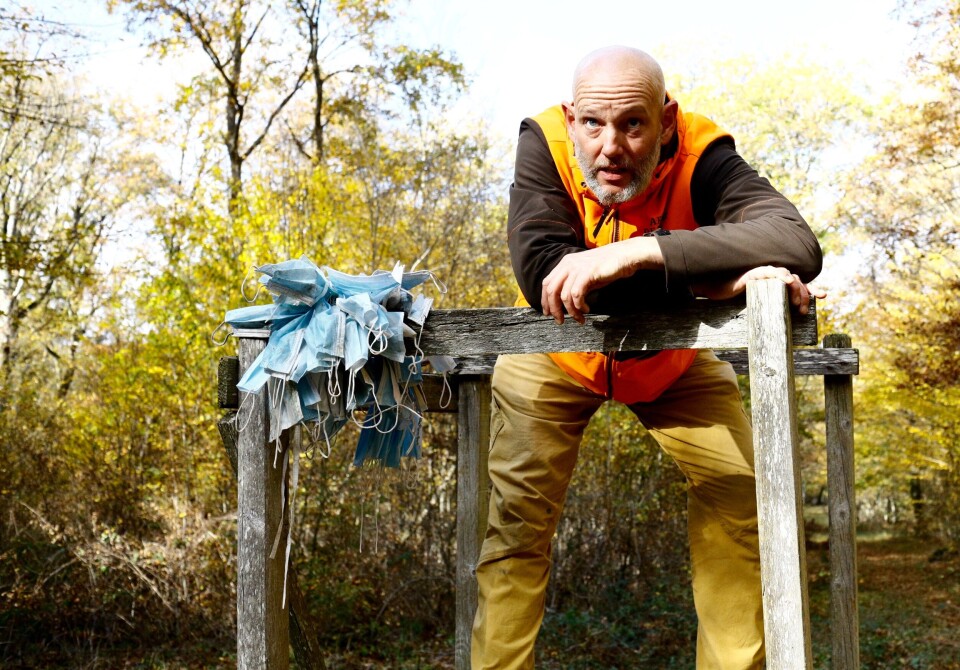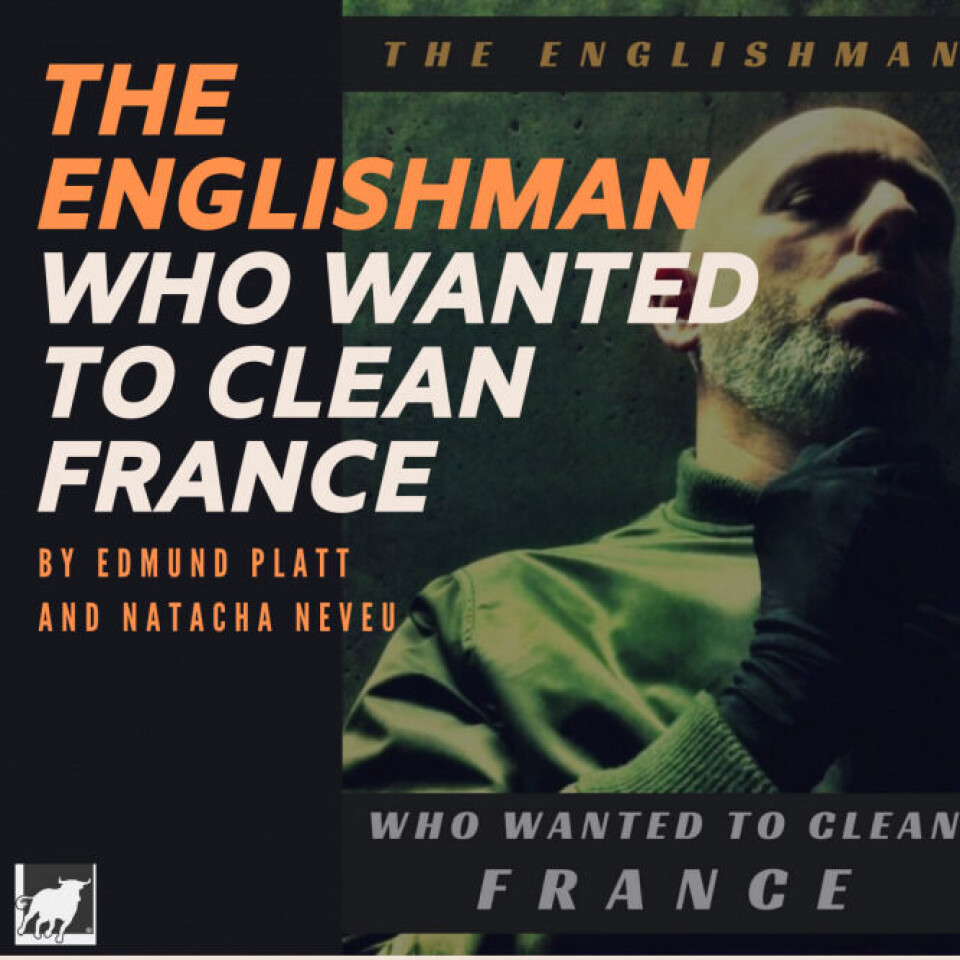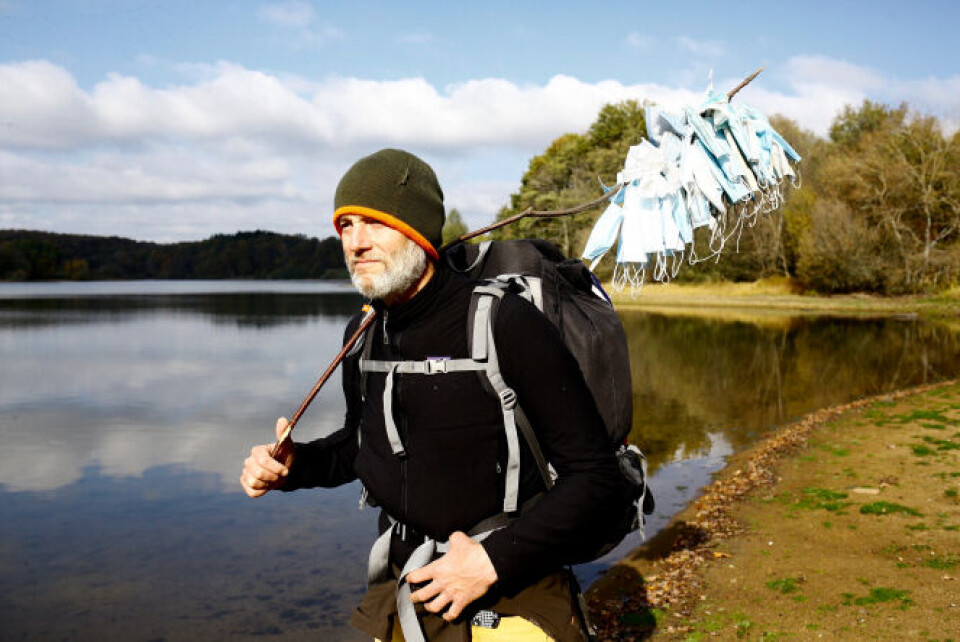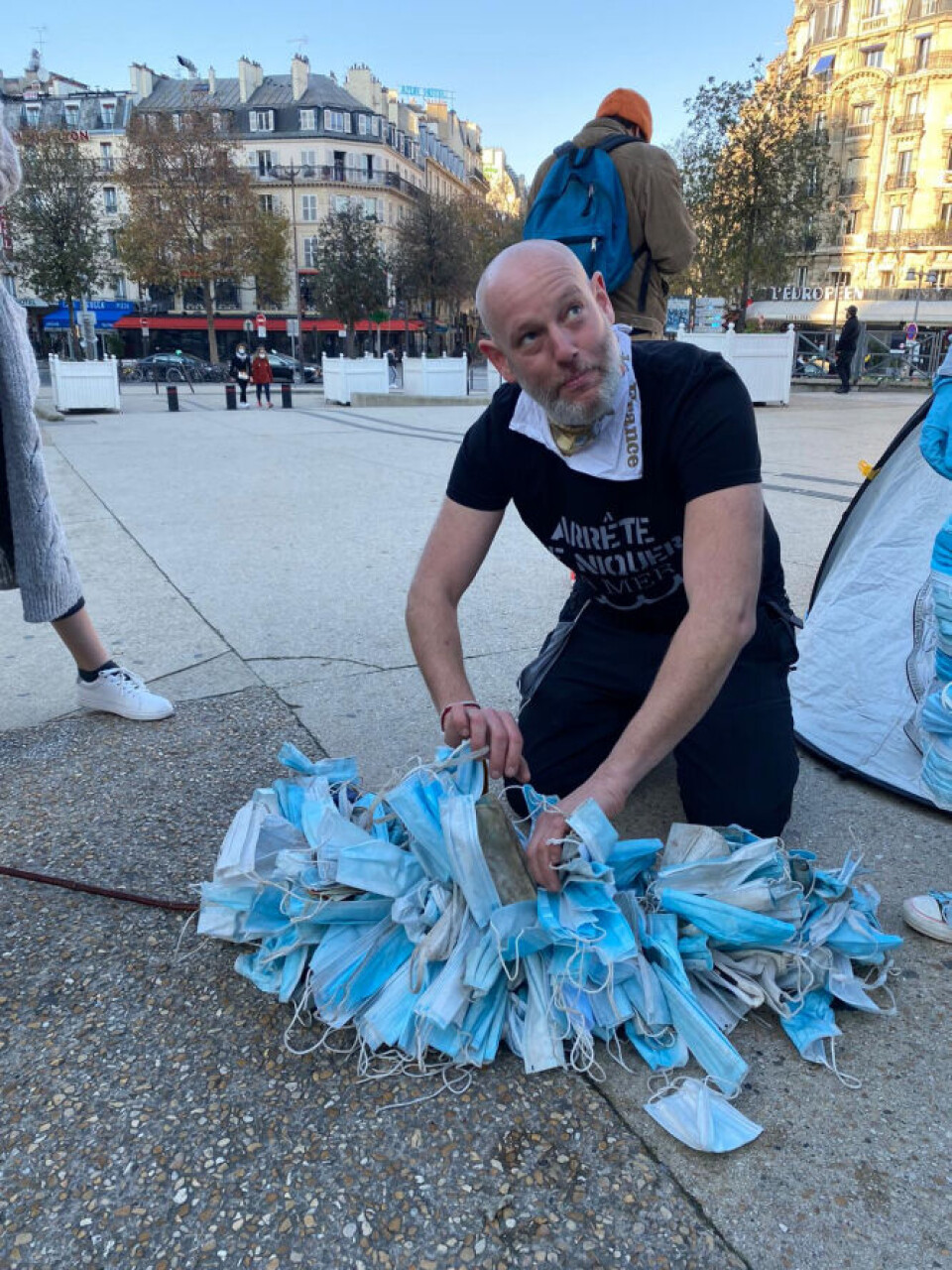-
Profile: Dorothée - France's beloved TV icon and screen mum
Profile of the singer, actress and TV presenter who captivated millions of schoolchildren
-
Rules change for dog walking in France from April
Here is how to ensure you and your dog remain within the rules and avoid fines
-
Why meat is becoming less popular in France
A new poll shows the alternative proteins people are choosing, and why
Meet the Englishman whose litter selfie kick-started a new career
Eddie Platt, who has become known as L’Escargot Anglais , has made a name for himself as The Englishman Who Wanted To Clean France

Eddie Platt has created a bilingual association, #1 Piece of Rubbish-1 Déchet par Jour encouraging people to pick up at least one piece of litter a day, and carried out two big trips to highlight how dirty France is, attracting media attention from national Radio and TV.
He has recently published a book about his first French trip.

Mr Platt used to be a salesman, travelling by plane twice a week and throwing 10,000 cigarettes on the floor and out of his BMW 3 series.
Then in 2011, he went to live in Marseille, teaching English and his whole world changed.
What prompted your move to France?
I grew up with family caravanning and camping holidays in France and I’ve always been drawn to both the exoticness and the simplicity of the country.
I got to know the language when I was young through contact with the children on the campsites.
I was the last of four in the family and have always been quite outgoing to make myself heard and, as the French love raising their voice, I’ve always fitted in.
I was brought up in Leeds but my parents divorced and my Dad remarried a French woman and so I joined him for a year when I was 13 and went to a French school near to Lille.
Later I came back and did lots of different jobs in France. I became a salesman and earned around €4,000 a month selling Google advertising.
Why did you give that up?
I wasn’t getting any mental stimulation. Apparently 0.1% of salesmen are natural born and I was in that category with the gift of the gab.
But it wasn’t enriching and selling advertising wasn’t human any more.
I had friends who had done their TEFL teaching English as a foreign language course and gone travelling, and I wanted to do that, even though it meant a massive pay cut.
I taught in Poland and then hitchhiked to Marseille in 2011. Within four days I had fallen in love with the town, the climate, the organised chaos. And so I stayed and set up my own company teaching Business English and I had a whale of a time.
'Marseille was different, a melting pot of chaos and disorder and freedom of expression'
I was my own boss. I had an amazing social life. There were 180 people at my first house-warming party.
So, why did you set up the association?
You are aware of the trash as soon as you arrive in Marseille.
Nice and Montpellier and Barcelona are no better. But I never had any intention to set up an association or to influence people until one day, when I was back in Leeds in 2015.
I went for a walk in Roundhay Park where I picked up a can and, without really thinking, took a selfie and posted it on social media with a caption saying my new habit was to pick up one piece of rubbish a day for the rest of my life.
This one photo went viral. I was surprised and overwhelmed when the next day people started sending me pictures of them picking up rubbish.
I never asked anyone to do that. It was completely organic.
Georges-Edouard Legré, back in Marseille, said he did that already and told me if I could make the people of Marseille pick up one piece of rubbish a day it would be amazing and he motivated me to set up the association with a website, Instagram, Twitter, Facebook etc. From there it snowballed.
Did it become popular straightaway?
Yes. The media attention was amazing. We set up a website and did a press conference at 9 o’clock in the morning and I gave all the journalists an Irish coffee which they loved.
The articles from that day were local, then regional, then national.

An AFP journalist called me the Englishman who wanted to clean up Marseille, and that headline went on to be used 262 times.
I was invited on national television and did an interview with television presenter, Antoine de Caunes on Canal Plus, and others. It was just such a huge success.
We were even featured for a week in Plus Belle La Vie (a long-running, TV soap set in a fictional neighbourhood in Marseille). Of course, I loved the media attention, and I still do.
How did you become so concerned about litter on the street?
My mum taught me that. We would always clean up any picnic area and leave any space cleaner than we found it.
An article yesterday described me as an ecologist, but I would not call myself that. I am just another human being. I haven’t studied anything about nature or pollution. I’m not a studious type of guy. I’m impressed I’ve actually written a book.
I’m not an eco-warrior, either. As soon as you use the word eco you are pigeonholed and it is too political. I am just un mec concerné like thousands of others.
Why did you decide to do your first 8,000km trip hitch-hiking round France in 2017 and write a book about it?
My Dad hitch-hiked across France in 1958 so I had heard all his tales and I wanted to do a trip because people were inviting me to come to see their towns.
The idea was to pay homage and meet people who already pick up trash, check out the state of litter with my own eyes and spread the litter picking message.
I designed a trip to go round the outside near the borders and then spiralled inside so that the route did look like a snail shell, which earnt me the nickname L’Escargot Anglais.
The trip was amazing. There was the freedom of hitchhiking and the adventure, the spirit of every single day going into the unknown.
France is the most beautiful country in the world. All these amazing places and different landscapes and culture and gastronomic and liquid diversity is to be enjoyed.
It is a real pearl but, like England, it is treated like an ashtray. I was sponsored by Carrefour and had six destinations to go to, which gave structure to the trip.
Is it not a bit ironic to have sponsorship from Carrefour, as their products produce a great deal of the waste you are trying to prevent?
I do not think any association in France would turn down €20,000 of sponsorship, to help promote their message.
I am blatantly honest about it. I have a good friend who was a well-placed director in Carrefour who introduced me to his boss, and within three phone calls I had 20 grand.
That helped finance the association for a year and it meant we could pay our rent and hand out free cotton shopping bags to people.
I don’t shop at Carrefour anymore and I encourage people to shop more ethically and locally and know where their produce is coming from.
But those six dates setting up a stand in a Carrefour shopping centre meant I could talk to members of the public. It was great because the full cross-section of society comes to shopping centres and I could talk to them about plastic pollution and where our trash ends up.
'The aim is to refuse, reduce, reuse, repair and recycle'
That is a strong, simple motto. We did that on a Saturday and promoted a local litter pick event on the Sunday.
Did people turn up?
Not many but who can blame them for not wanting to give up their Sunday? I was in fact more successful starting off litter picks on my own wherever we went.
People just joined in spontaneously and I was like the pied piper. It was more fun. But talking to so many people on the Saturday was successful and it was a good way to get media attention.
Every town I went to I would pick up the local paper and get a journalist to come and talk to me. I was followed by France 3 TV throughout the tour.
Were people mostly welcoming?
Yes, of course. I never met anyone who thought what I was doing was wrong and there was always human kindness and generosity.
Anyone who picks up someone hitch-hiking is a good type, whether they are in a clapped out old Peugeot or a spanking new Ferrari.
There are probably just between five and 15% of people who throw away litter, but that is too much.
How do you get to those people, because when you are doing this trip you are preaching to the converted?
But I was visible. When you are on the road waiting for your next lift and you’ve got a bin bag and you’re filling it, there could be 30, 100 or even more cars that pass you by.
Hopefully, because you’ve got a smile on your face it will make people think.
We decided that if you do drop litter, the message must be, tomorrow, just try to drop a little less. It can’t be stopped overnight. It is like giving up smoking, it has to be progressive.
I did throw sweet papers out of the car when I was a child and watch them fly off. I’ve smoked 10,000 cigarettes and chucked them on the floor as every smoker does. We’re all polluters. But back then we didn’t know about the effects on the planet. Our grandparents and parents didn’t have satellite images of islands of trash. But now there is no excuse, as we all know about it.
Your second trip was an 880km walk from Marseille to Paris in October to November 2020. Was there less or more rubbish than in 2017?
It was just the same. Marseille hasn’t changed, and there is litter all over France, in the towns and countryside.

Going to Paris we picked up 3,587 masks on the way, an added litter problem. There are more people picking up trash, but we are fighting against the plastic industry and over the next 10 years I think they will double the amount of single use plastic.
Even though there are now laws to diminish the production of single use plastic such as straws and cotton buds?
No comment. The single use plastic industry in Europe is worth billions of euros a year.
Those guys are not wanting to get rid of those figures, not wanting to change the lifestyle of their shareholders.
Have you made it cool to pick up litter?
There are a lot of invisible litter pickers. When I was back in Leeds I discovered there was a guy who clears up litter at night so nobody could see him.
I’ve met a woman in Marseille who has picked up at least 10 plastic bottles a day for the past 25 years – that amounts to 36,000 bottles. For me she is a goddess.
There are thousands, perhaps millions who pick up at least one piece of rubbish a day.
But we are at the forefront of a movement and not shying away from telling the truth and showing that people should be proud of picking up rubbish.
It would be great if every Connexion reader also picked up a piece of litter a day. Doing it is like stroking the planet. Every time you pick up a piece of rubbish, you are showing your love for where you live.
Can you remember one special meeting from your trips?
There are so many. Once, we were staying with a family with two young boys and one said “I hope that when we’re bigger you are still alive so we can go on a litter picking adventure together.”
I would love people to read the book, to get the message. The book is for everybody. It is cheaper than a pint. I am giving 10% of profit to charity.
Related stories
Researchers developing plastics that biodegrade in seawater
French anti-mask doctor suspended for five months
























